View more
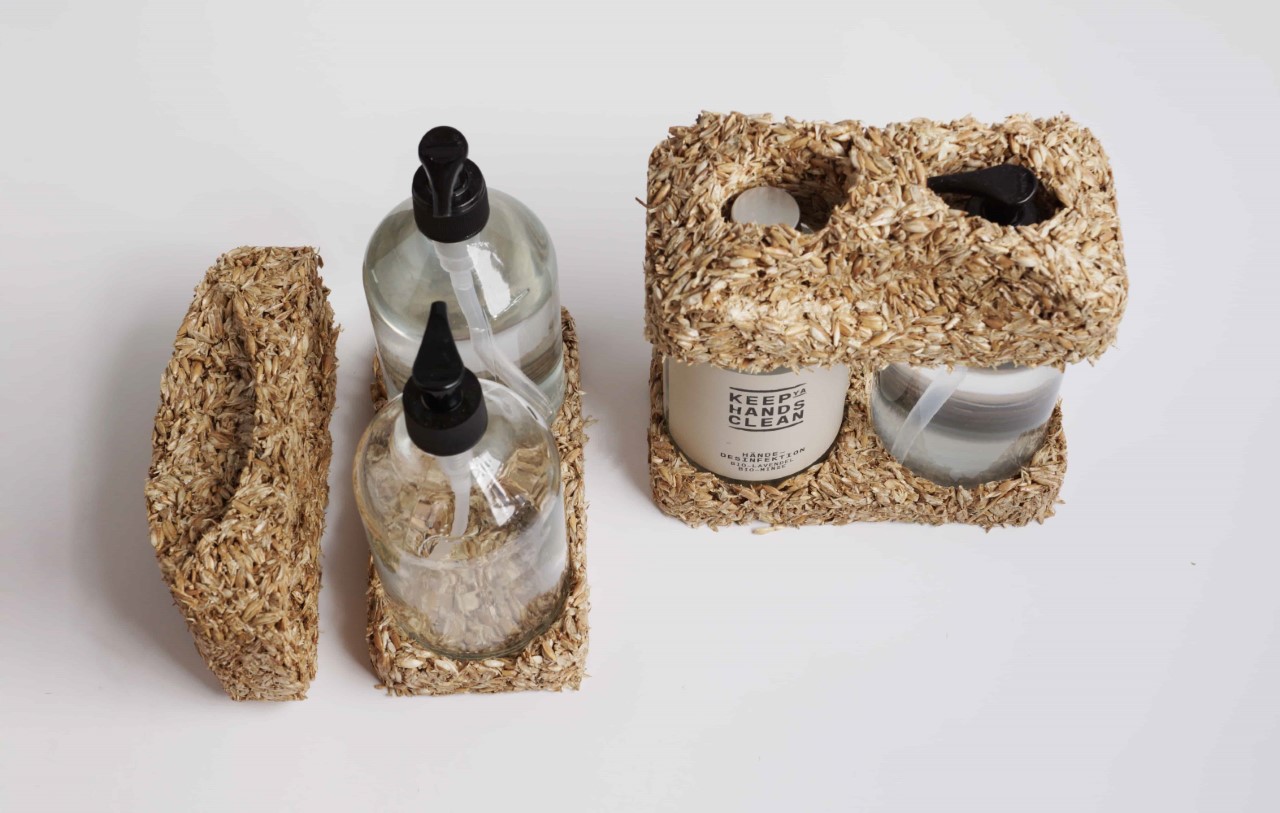
While there’s a conscious effort to remove plastic from our regular consumption, it still manages to play a pretty large (and unavoidable) role in packaging. Whether it’s shrink wrap, bubble wrap, sellotape, or even styrofoam… it seems like getting plastic out of packaging may just be an impossible task. However, a German company is working on an alternative to replace styrofoam in packaging. Their solution? A cushioning material made out of grain husks.
Designer: Proservation
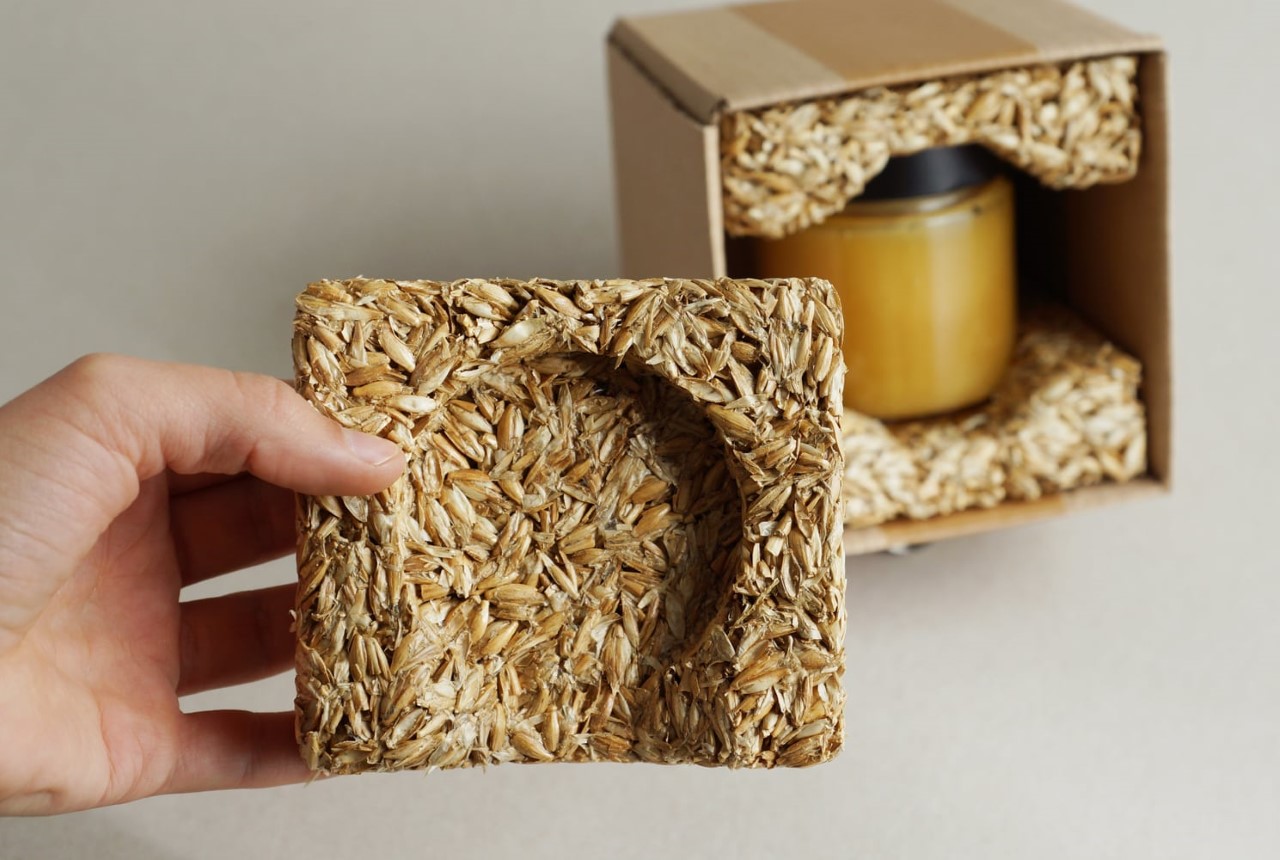
The intended purpose of a product’s packaging is simply to help it cover the journey from factory to consumer. After it’s made this journey, a product’s packaging ends up becoming waste. Scale that up to account for the population of the world and just how many products we buy in a single given day or week, and you’ll realize what a massive problem we have on hand. Sure, it’s easier to recycle cardboard boxes and I can even stretch that argument to bubblewrap or foam peanuts… but it’s nearly impossible to recycle molded styrofoam pieces because they’re specifically designed to hold a certain product and can’t be used anywhere else. Conventional styrofoam is made by passing a foaming agent through plastic, causing it to bubble up into the lightweight styrofoam you use today. Given that it’s essentially made by combining plastic and air, recycling styrofoam as a material is borderline impossible… but replacing it isn’t.
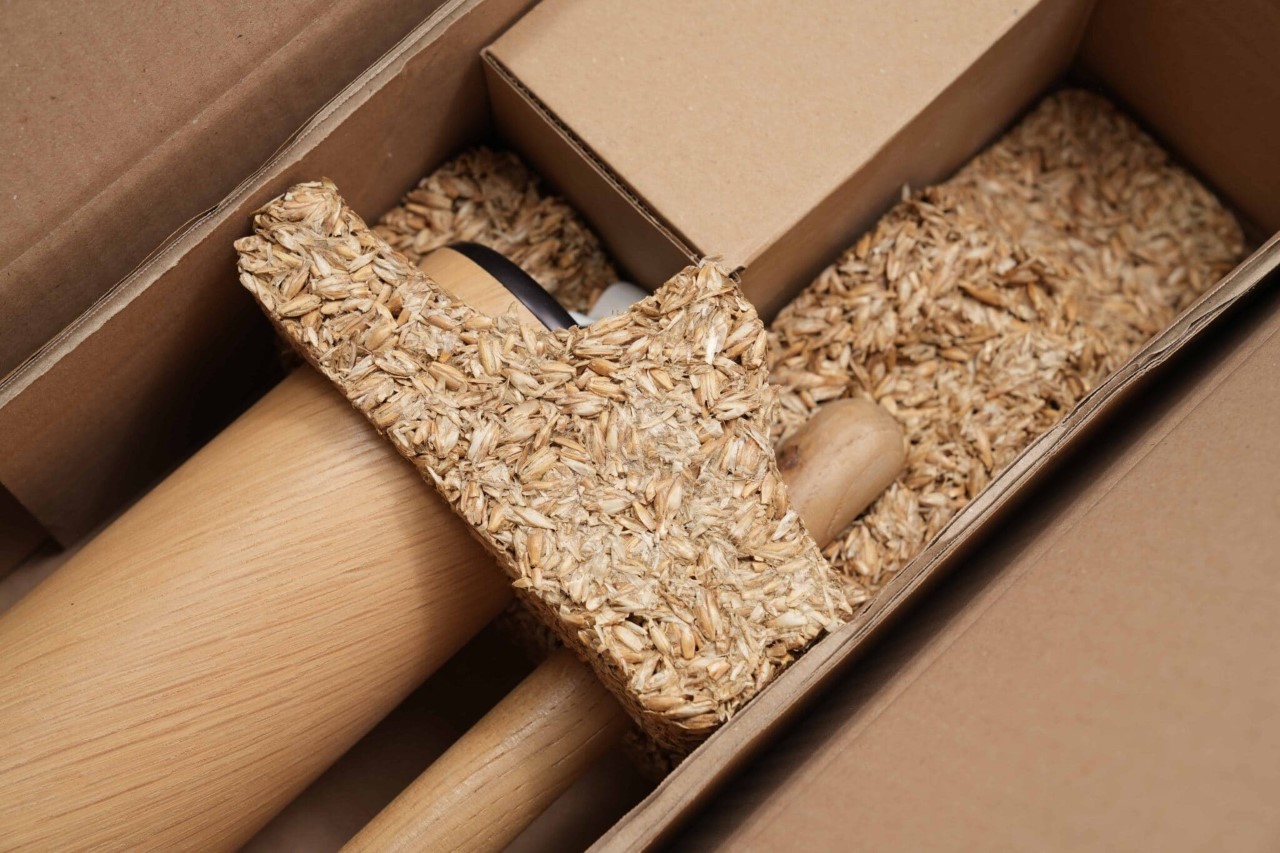
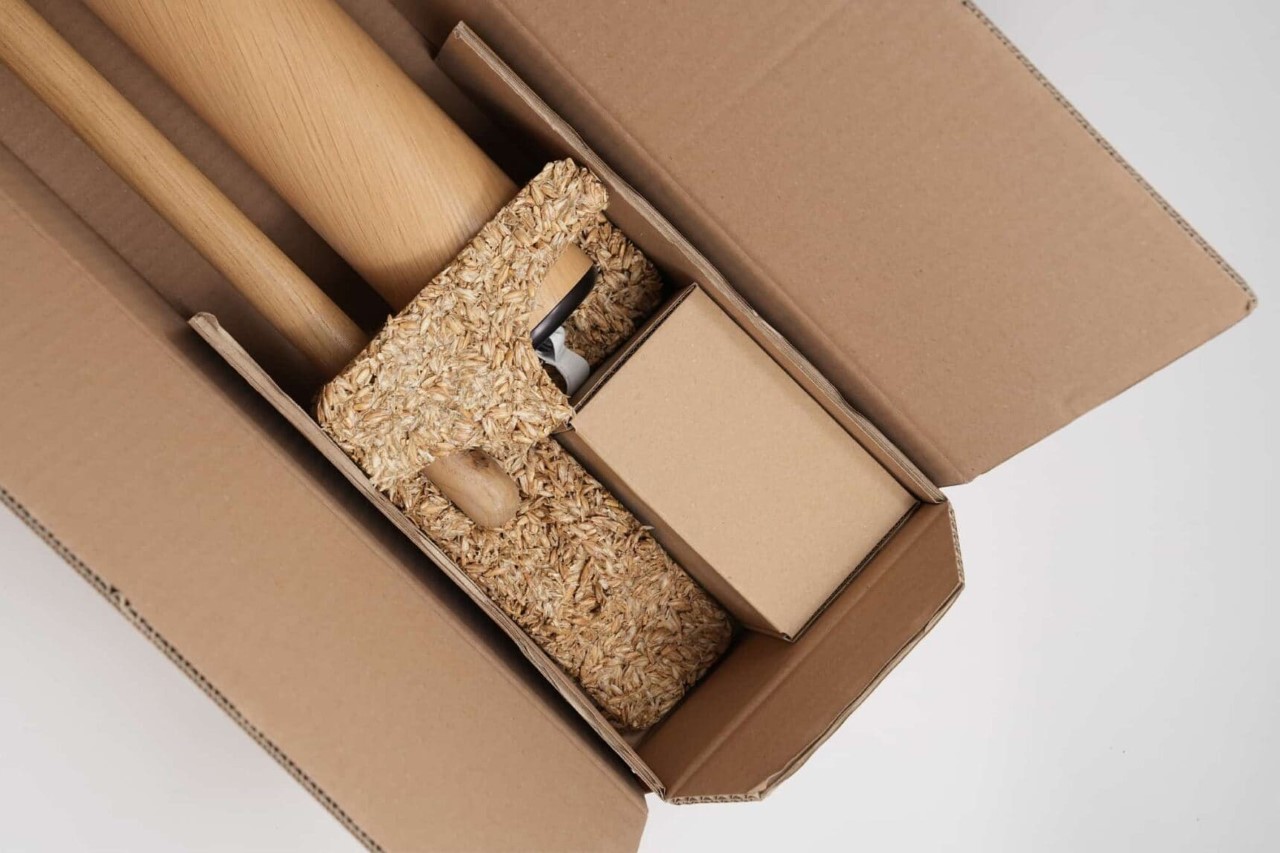
Proservation’s solution is a product called Recou – a ‘molded’ packaging material that’s made from grain husk (which is also what nature uses to package grains!) When grains are harvested, the husk or chaff is removed and either discarded, burned, or used as animal bedding. Proservation has a clever alternative solution – upcycle this husk into a soft, impact-resistant material that does the job of styrofoam, while essentially being biodegradable. The husk is collected and bound together using a proprietary bio-based binder. The overall product has the same properties as styrofoam, but can be easily discarded or even composted.
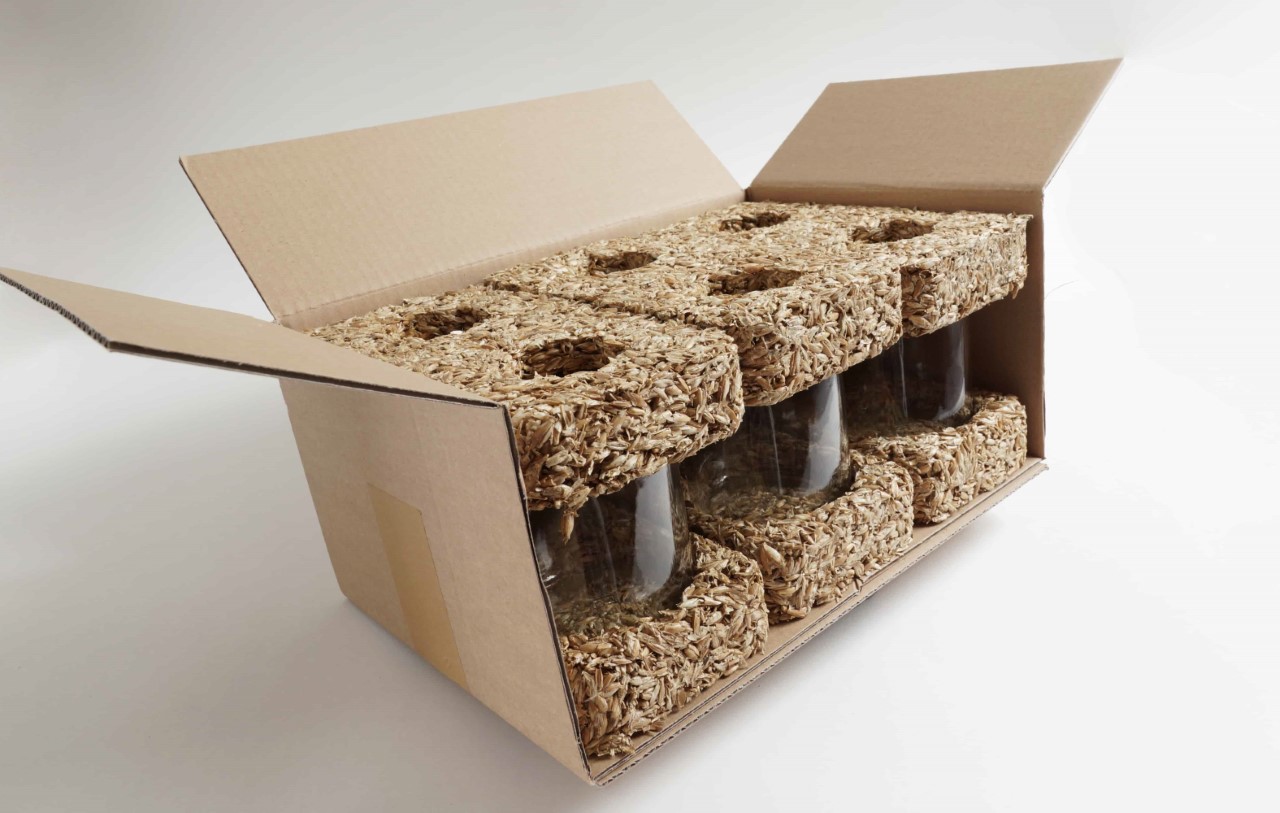
“Thanks to our specially developed ecological binder, RECOU can be shaped as desired, and due to comparable material properties, it has the potential to substitute petrochemical packaging solutions such as EPS (Styrofoam) and represent an ecologically sound alternative for many applications,” says Proservation.
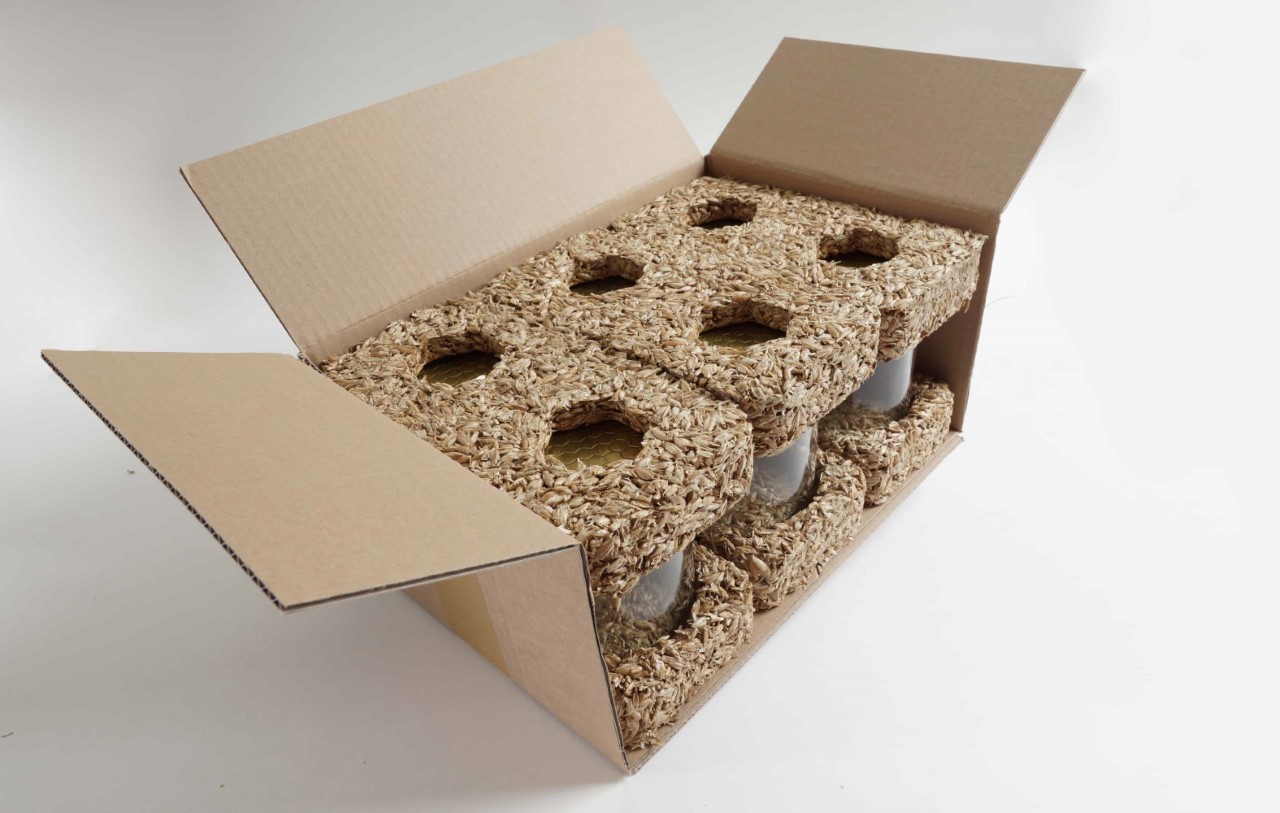
Proservation is hoping that Recou can replace a major bulk of styrofoam in the current packaging ecosystem. The material has the ability to be molded just like styrofoam, albeit with a few limitations given the size of an individual husk. It takes anywhere from 6-8 hours to make each piece, and the overall product has a density of 120 to 150 kg/m³, which seems to be the one significant limiting factor, given that styrofoam weighs nearly 70% less. Recou is also designed to resist moisture and humidity, showing no signs of mold when stored at 70% humidity for up to a week… “However, if the material is permanently exposed to high humidity or moisture, the decomposition processes start and mold may occur,” the company says.
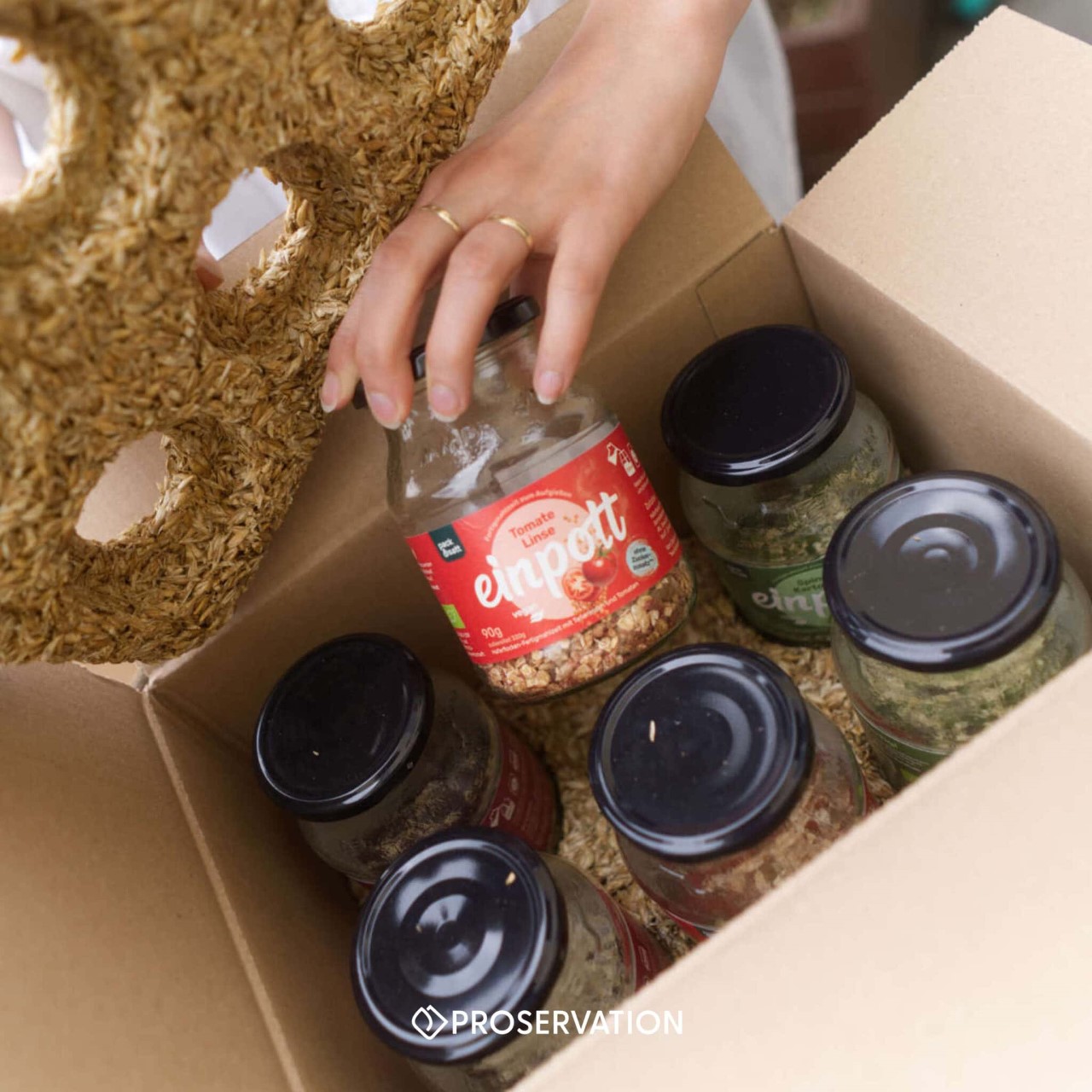
For industries/companies interested in transitioning to Recou, Proservation does sell a few standard products like corner-cushions for palettes, and is also open to molding specific products based on requirements. The company plans to have an industrial plant operational by some time in 2024, scaling up production for this unique no-waste bio-based alternative to styrofoam.